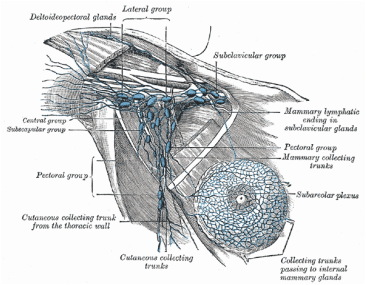Treating Breast Cancer on Vancouver Island - Information Relevant to youReceiving a new diagnosis of breast cancer can be shocking news. For many women, most of what is said in the consultation appointment can be a blur, especially if you are hearing the diagnosis for the first time in your surgeon's office. There have been great advances in the treatment of breast cancer and many therapies are used in combination to achieve the best possible results. These include surgery, chemotherapy, radiation and hormonal therapy. There is a lot to process, and ultimately some big decisions, such as what type of surgery you have, rest with you. There are many excellent resources available to women with breast cancer, the BC Cancer Agency Companion Guide to Breast Cancer is a great document to help you get organized and be prepared for what to expect.
Surgery for Breast Cancer
Mastectomy vs Partial Mastectomy - What's the difference?The most important thing is that your chance of surviving breast cancer is the same, regardless of what surgery you choose. That said, there are several important differences between the procedures. A partial mastectomy (often called a lumpectomy) is a much shorter procedure where just the tissue surrounding the tumour is removed (the nipple and areola remain behind), you can go home the same day, and has a fairly straight forward recovery period. A mastectomy is a larger operation where the entire breast including the nipple and areola are removed. It requires staying in the hospital for one or two nights afterwards, drains are often left in the surgical site, and has a longer recovery period. More information on the types of surgery is available in this booklet via the BCCA.
There is a trade-off, however. In order to reduce the chance of the cancer recurring, radiation is recommended after a partial mastectomy for cancer. This is done in Victoria, and usually is done over a period of three weeks. More information on radiation treatment for breast cancer is available here. Additionally, it is imperative that all the cancer be removed with the lumpectomy. The radiation treatment helps to reduce the risk of the cancer coming back in the breast. Because microscopic tumour cells may be present (and invisible to your surgeon doing the operation) it is occasionally necessary to have a second procedure to ensure all the cancer cells are removed. There are hundreds of websites and opinions on what type of surgery is best, but it is imperative to remember that what is best for some people may not be best for you. Ultimately, the decision on what type of procedure is best for you will be between you and your surgeon. Some people may be particularly well suited to a certain approach, your surgeon will make specific recommendations if they apply to you. Be sure to write down your questions before your appointment so you don`t forget to ask them. Breast ReconstructionPatients who undergo a total mastectomy are generally candidates for breast reconstruction. Reconstruction can be done immediately (ie. at the time of the cancer surgery) or in a delayed fashion once you have had time to recover from the surgery and have progressed through the adjuvant treatments such as radiation (if necessary) and chemotherapy. There are pros and cons to each approach. Here in Nanaimo we are fortunate to work closely with a skilled group of Plastic surgeons who offer a full spectrum of reconstruction options. Talk to your surgeon about whether or not you would be a candidate for reconstruction and a referral can be made to one of our plastic surgery colleagues.
Lymph NodesThe breasts are drained by a lymph system, which acts as a sort of gutter for fluid and cells. These collect in nodes in our armpits (axillae). An important part of any breast cancer treatment is evaluating the lymph nodes for any evidence of cancer cells that have spread from the breast. Just as we are moving towards removing less tissue from the breast, we are now using advanced technology to remove less tissue from the axilla, which reduces the chance of complications such as lymphedema (swelling of the arm). Using a technique called a Sentinel Lymph Node Biopsy, your surgeon will use a special gamma probe to precisely locate the first lymph nodes in your axillary chain and remove only those first nodes. This allows these nodes to be examined under the microscope for any cancer cells, which if present may alter what further treatments you require.
|
|
